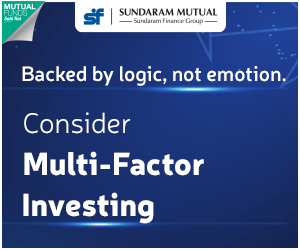Term Of The Week
Types of debt mutual fund: Overnight Fund
Oct 4, 2018The overnight market is a money market segment where the term of the security is shortest, just overnight. The borrower or the issuer of the security has to pay back the money in full (principal and interest) at the start of the next business day. The participants in the overnight market are mostly financial institutions. Banks... Read More
Investment Strategies in Debt Mutual Funds: Duration Call
Oct 4, 2018Bond prices are inversely related to interest rate movements. If interest rates rise, bond prices fall and vice versa. Debt mutual fund managers, who take duration calls, aim to gain from interest rate movements. If they expect interest rates to fall, they buy long maturity bonds. The price sensitivity of a bond to... Read More
Investment Strategies in Debt Mutual Funds: Credit Risk
Oct 4, 2018In credit risk debt mutual funds, the fund managers aim to capture higher yields by investing a portion of the assets in slightly lower rated (lower than AA) corporate bonds or debentures. The yield spread between A and AA rated papers can range from 175 to 200 bps, while that between A and AAA rated papers can... Read More
Investment strategies in debt mutual funds: Accrual
Sep 1, 2018Accrual strategy in debt mutual funds is holding a bond till maturity and accruing the interest paid by the bond. A regular bond pays coupon or interest at fixed intervals and pays back the face or par value at maturity. An investor can buy a bond at a premium or discount to face value, but once purchased and if held till... Read More
Risk factors in debt mutual funds: Interest rate risk
Aug 16, 2018Debt mutual funds invest in bonds, debentures and money market instruments. The securities trade in the debt market and money market, at either discount or premium to its face value (par value) depending on the residual maturity of the security and interest rate environment. Interest rate is the most significant risk... Read More




